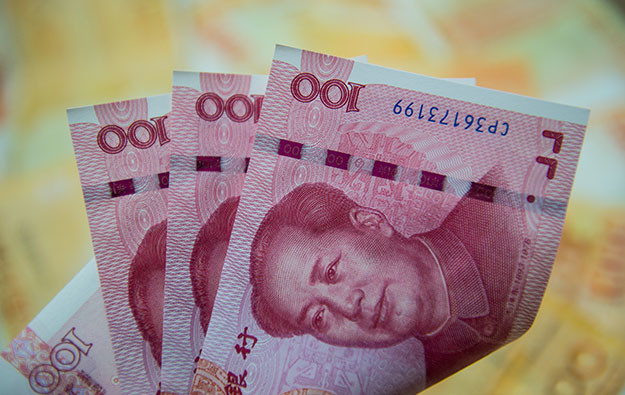Macau govt warns of illicit encashment services
Oct 23, 2019 Newsdesk Latest News, Macau, Top of the deck

The Monetary Authority of Macao issued a warning on Wednesday against anyone seeking to promote what it said was “unauthorised” encashment services in the city. Soliciting consumers to use such services was causing “serious nuisance” to members of the public, the authority said.
The warning related to certain services that purport to enable consumers to move money from a number of online-based, mainland China-issued, payment systems, to Macau. The Macau authorities and the central government have in recent years taken a number of steps – in relation to regulated banking and bank card services – either to improve oversight of cross-boundary money transfer, or moderate the volume of it.
The Macau authorities have also beefed up efforts to crack down on illicit money exchange activities in the city.
In Wednesday’s statement, the city’s Monetary Authority said it had recently become aware of distribution on Macau’s streets of promotional materials that pledged the encashment in Macau of balances stored virtually on various mainland China-issued, credit-based, consumer payment tools.
Product names mentioned on promotion cards according to the Monetary Authority included: the Chinese virtual credit card Ant Credit Pay – commonly known as in China as “Huabei” – a product of Ant Financial; the online credit product Baitiao, from JD.com Inc – a firm also known in China as “Jingdong”; and an online credit product from Suning Financial Services, part of Suning Holdings Group Co Ltd; as well as other Internet-based lending tools.
The authority also noted it had observed the soliciting via Chinese social media platform WeChat of services offering unauthorised encashment of funds held in the form of available credit on such mainland-based services. WeChat had also been used to offer private lending services, the body said.
“Any individuals or entities engaged in providing unauthorised financing activities in Macau … could be fined up to MOP5 million [US$618,505],” the authority highlighted in its Wednesday statement.
GGRAsia contacted the Monetary Authority seeking clarification on whether such unauthorised encashment services had been promoted specifically in areas surrounding Macau casinos. The authority did not provided a response by the time this story went online.
In Macau, the local pawnshop trade is said by investment analysts to have been traditionally a route to shift funds from mainland China to Macau - evading the normal currency export rules from the People’s Republic of China. This has been by visitors purchasing – typically via mainland-issued China UnionPay Co Ltd bank cards – high-value goods such as watches or jewellery, and then returning them for a cash refund.
The Chinese government has in recent years imposed various regulatory measures designed to curb capital outflow, including exit of funds for gambling in Macau. The measures have featured a limit on the annual aggregate amount of cash people can withdraw from their mainland China bank accounts while overseas; and a combination of curbs and fresh oversight regarding China UnionPay transactions at either pawnshops or some jewellery shops on or near Macau casino premises.
The Chinese authorities have put in place since January 2018 an annual CNY100,000 (US$15,366) limit on the aggregate amount of money people can withdraw from their mainland China bank accounts while overseas .
Related articles
-
 BMM gets accreditation to test, certify...
BMM gets accreditation to test, certify...Apr 11, 2024
-
 Pagcor warns POGOs against involvement...
Pagcor warns POGOs against involvement...May 18, 2023
More news
-
 Donaco EBITDA up y-o-y to above US$4mln...
Donaco EBITDA up y-o-y to above US$4mln...Jul 26, 2024
-
 HK listed Palasino upgrades Czech...
HK listed Palasino upgrades Czech...Jul 26, 2024
Latest News
Jul 26, 2024
Border-casino operator Donaco International Ltd has achieved a 164.17-percent year-on-year increase in its latest quarterly group earnings before interest, taxation, depreciation and amortisation...Sign up to our FREE Newsletter
 (Click here for more)
(Click here for more)
Pick of the Day
”We’ve got more traction outside of Macau at the moment. But Macau’s going be a bigger focus for us”
David Punter
Regional representative at Konami Australia
Most Popular
 Sheraton brand to exit Londoner Macao, to be Londoner Grand July 25, 2024
Sheraton brand to exit Londoner Macao, to be Londoner Grand July 25, 2024  Macau regulator probes unlicensed gaming agents July 24, 2024
Macau regulator probes unlicensed gaming agents July 24, 2024  Philippines gives 20k aliens in POGOs 60 days to leave July 25, 2024
Philippines gives 20k aliens in POGOs 60 days to leave July 25, 2024  Philippines-listed DigiPlus says not affected by POGO ban July 24, 2024
Philippines-listed DigiPlus says not affected by POGO ban July 24, 2024  Sands China 2Q EBITDA down q-o-q amid low hold, renovation July 25, 2024
Sands China 2Q EBITDA down q-o-q amid low hold, renovation July 25, 2024






